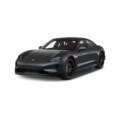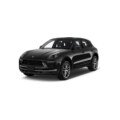Porsche Cayenne Base


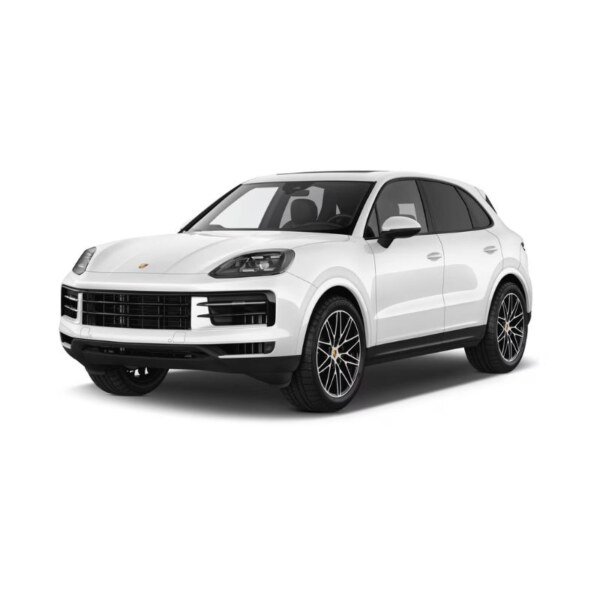
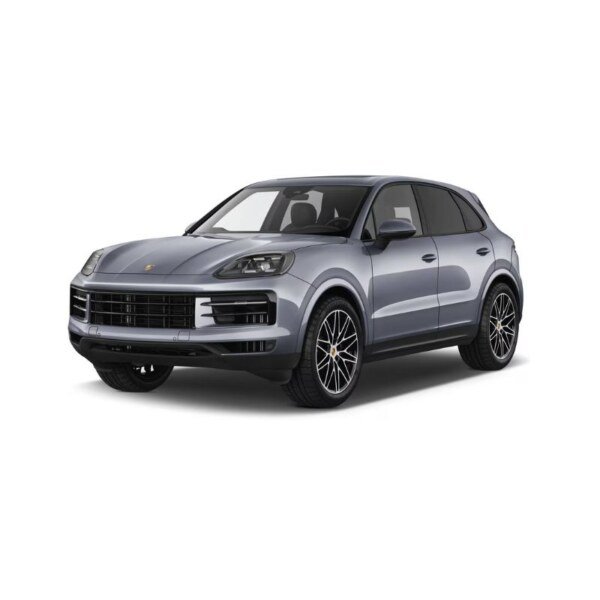

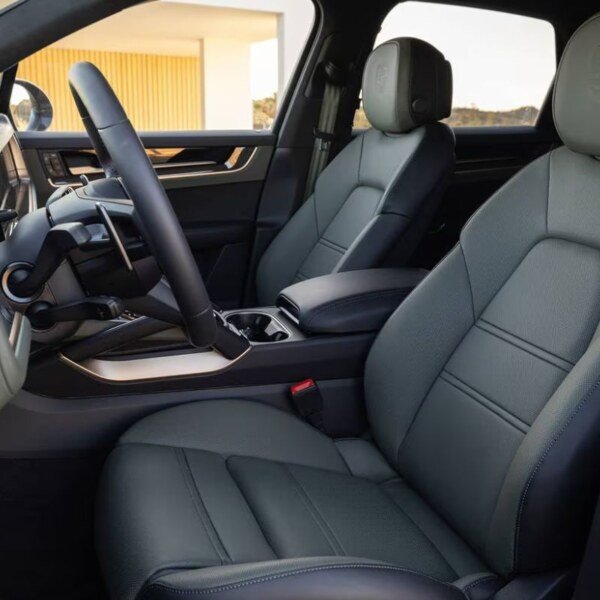
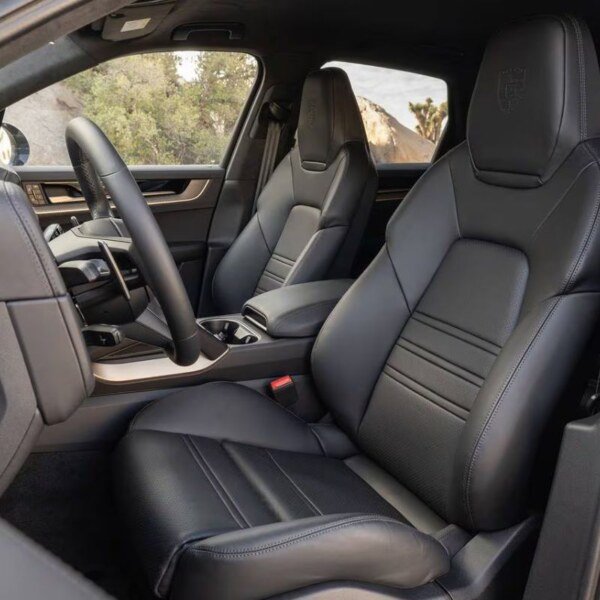
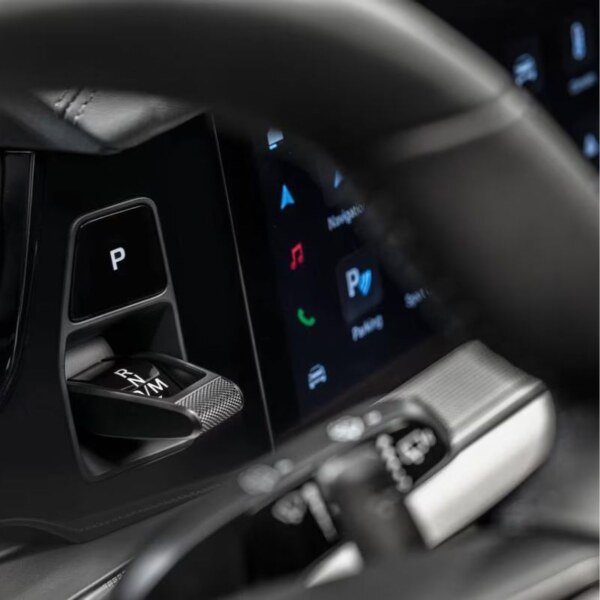
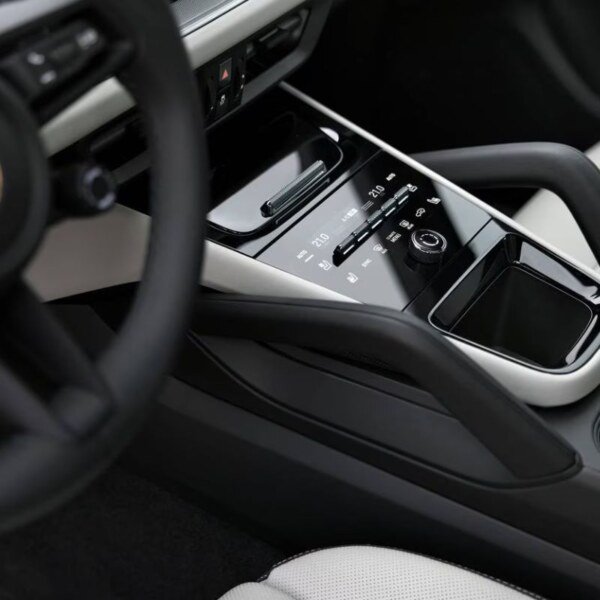
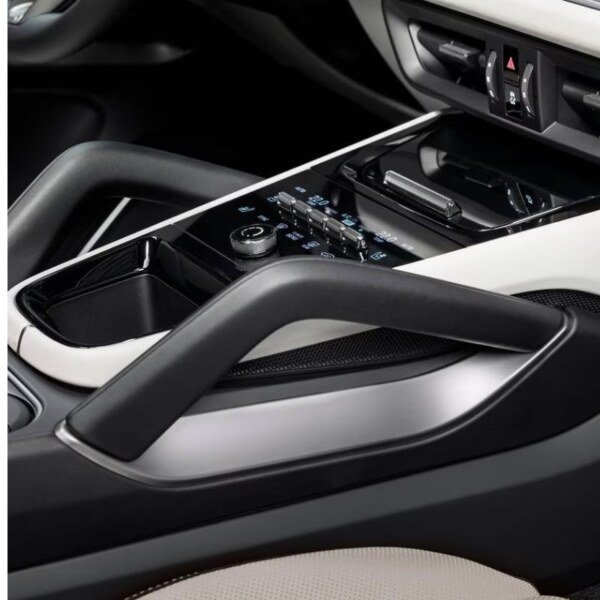
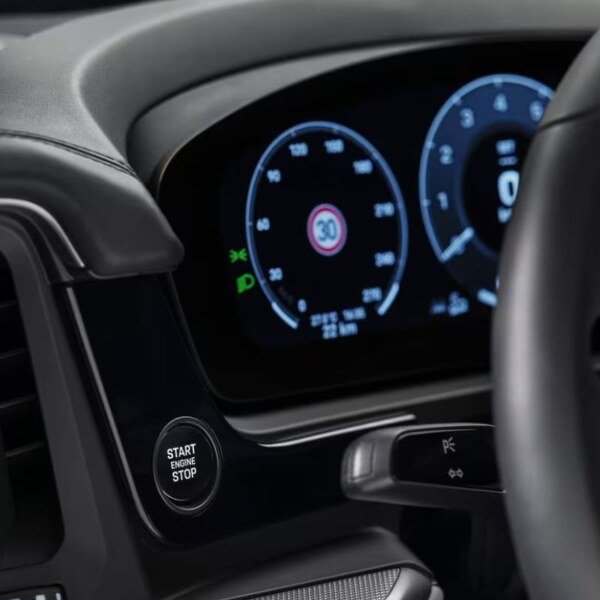
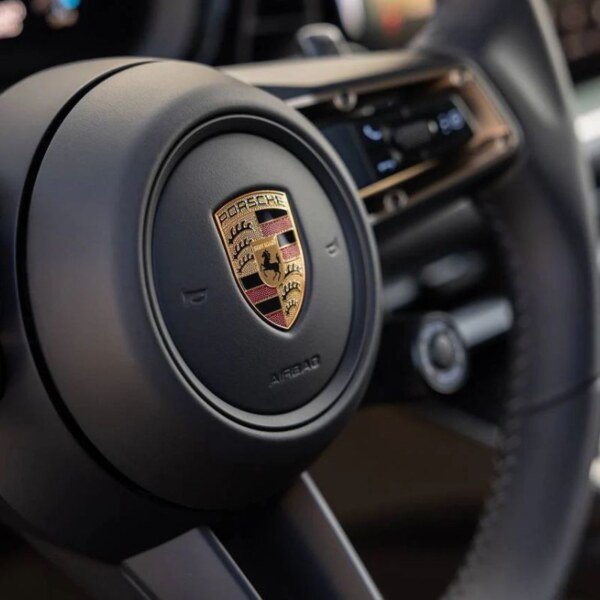
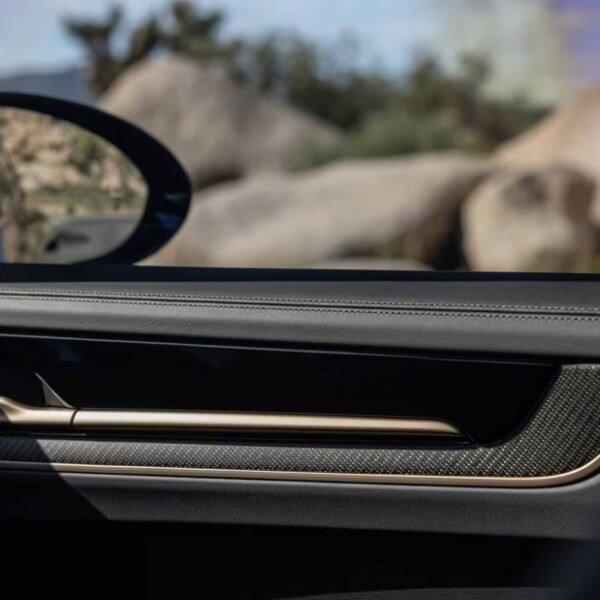
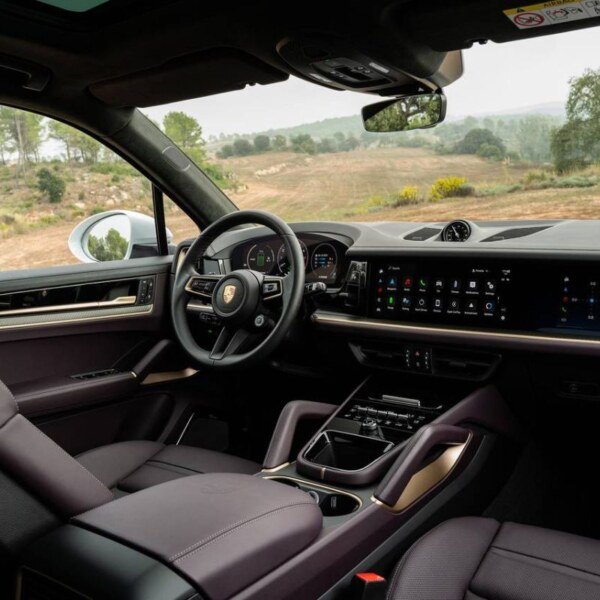
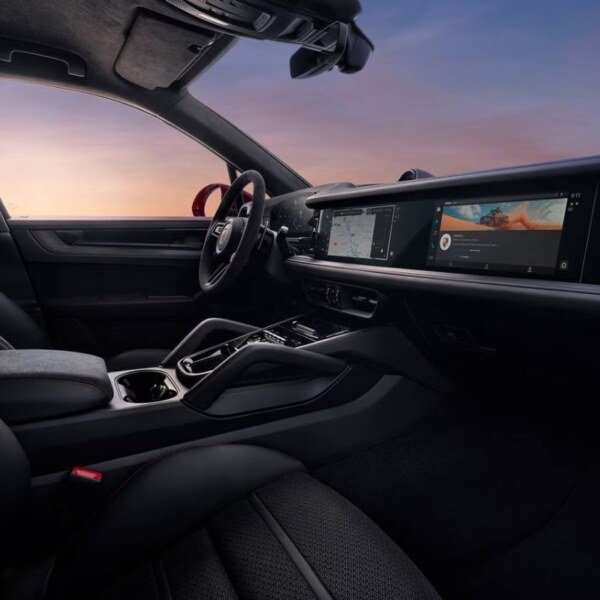

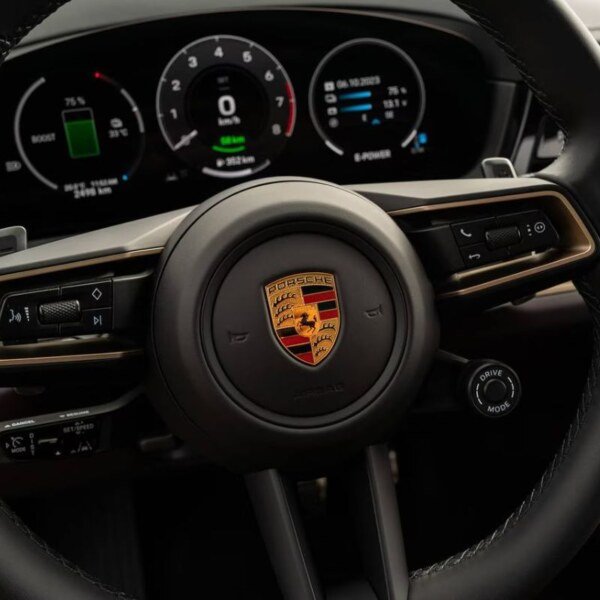
Specifications
Overview
| Models Car models are the different versions or designs of cars made by a manufacturer, each with unique features, styles, and configurations. | Cayenne Base |
| Year typically refers to the model year of a vehicle, which indicates its design and production cycle rather than the actual manufacturing date. | 2025 |
| Combined MPG Combined MPG is the average number of miles a vehicle can travel per gallon of fuel, calculated by blending city and highway driving figures. | 19 MPG |
| Drive Type A car's drive type refers to which wheels receive power from the engine. For example, front-wheel drive (FWD) powers the front wheels, rear-wheel drive (RWD) powers the rear, and all-wheel drive (AWD) or four-wheel drive (4WD) power all four wheels. | all wheel drive |
| Total Seating Car total seating refers to the maximum number of passengers a car can accommodate, including the driver. | 5 |
| Cargo Capacity Car cargo capacity is the measurement of the space available in a vehicle for storing items, typically given in cubic feet or liters. | 27.3 cu.ft |
| Curb Weight Car curb weight is the weight of a vehicle with all standard equipment, fluids, and a full tank of fuel, but without passengers or cargo. | 4,678 lbs. |
| Basic Warranty A Basic Warranty is a manufacturer’s promise to repair or replace parts of a product if they prove defective within a specified period. | 4 yr./ 50,000 mi. |
| Dealerships Car dealerships are businesses that sell new or used vehicles directly to consumers, often providing financing, trade-ins, and maintenance services. |
United States Houston, Texas, 3 |
Fuel & MPG / Battery & Range
| Fuel type Fuel type refers to the kind of energy source used to power an engine or appliance, such as gasoline, diesel, electricity, or alternative fuels. | Premium unleaded (required) |
| EPA city/highway MPG EPA city/highway MPG refers to the estimated miles per gallon a car gets in city driving and on highways, as measured by the U.S. Environmental Protection Agency. | 17/23 MPG |
| EPA combined MPG EPA combined MPG stands for Environmental Protection Agency Combined Miles per Gallon. It estimates a vehicle’s fuel efficiency by averaging its performance in both city and highway driving conditions. | 19 MPG |
| Range in miles (city/hwy) Car range refers to the distance a vehicle can travel on a full tank of fuel (or a full battery charge) and is usually measured separately for city driving—which often gives a lower range due to stop-and-go traffic—and highway driving, where steady speeds generally result in a higher range. | 402.9/545.1 mi. |
| Fuel tank capacity A car's fuel tank capacity is the maximum amount of fuel it can hold, usually measured in liters or gallons. | 23.7 gal. |
| CO2 Emissions Car CO₂ emissions refer to the amount of carbon dioxide released into the atmosphere by a vehicle’s engine as it burns fuel. | 7.5 tons |
Engine
| Base engine size The car’s base engine size usually refers to its engine displacement, which is the total volume of all the cylinders (measured in liters or cubic centimeters). | 3.0 L |
| Cylinders Car cylinders are the chambers in an engine where the combustion of fuel occurs, driving pistons to create mechanical power. | V6 |
| Base engine type A car’s base engine type refers to its fundamental design—typically the configuration (like inline, V-type, or boxer) and the fuel it uses (gasoline, diesel, etc.). | Gas |
| Horsepower Car horsepower is a unit of power that measures how much work an engine can perform, with one horsepower roughly equal to 746 watts. | 348 hp @ 5,400 rpm |
| Torque Car torque is a measure of the engine's twisting force, indicating its ability to accelerate the vehicle and overcome resistance. | 368 lb-ft @ 1,450 rpm |
| Valves Car valves are engine components that control the intake of air and fuel and the exhaust of combustion gases. | 24 |
| Cam type generally refers to the configuration of an engine’s camshaft(s). For example, engines can have a single overhead cam (SOHC) or dual overhead cam (DOHC) layout, each affecting valve timing and engine performance differently. | Double overhead cam (DOHC) |
| Valve timing Valve timing is the process of precisely controlling when the engine's intake and exhaust valves open and close to optimize performance and efficiency. | Variable |
| Direct injection Direct injection is a fuel system that injects fuel directly into the engine’s combustion chamber, which improves efficiency, power, and fuel economy. | Standard |
Towing & Hauling
| Max Towing Capacity | 7,716 lbs. |
| Max Payload Capacity | 1,572 lbs. |
Drivetrain
| Transmission A car transmission is the system that transfers power from the engine to the wheels, using different gear ratios to control speed and torque. | 8-speed shiftable automatic |
| Drive Type A car's drive type refers to which wheels receive power from the engine. For example, front-wheel drive (FWD) powers the front wheels, rear-wheel drive (RWD) powers the rear, and all-wheel drive (AWD) or four-wheel drive (4WD) power all four wheels. | All wheel drive |
Suspension
| Four-wheel independent suspension | Standard |
| Front and rear stabilizer bar | Standard |
Dimensions
| Length | 194.1 in. |
| Overall width with mirrors | 86.4 in. |
| Overall width without mirrors | 78.1 in. |
| Height | 66.9 in. |
| Wheelbase A car's wheelbase is the distance between the centers of its front and rear wheels. | 114.0 in. |
| Cargo capacity, all seats in place | 27.3 cu.ft. |
| Maximum payload | 1,572 lbs. |
| Maximum cargo capacity | 60.3 cu.ft. |
| Manufacturer 0-60 mph acceleration time | 5.7 seconds |
| Turning circle The car turning circle is the smallest circular path a vehicle can complete, reflecting its maneuverability. | 40.0 ft. |
| Curb Weight Car curb weight is the weight of a vehicle with all standard equipment, fluids, and a full tank of fuel, but without passengers or cargo. | 4,678 lbs. |
| Angle of approach | 25.2 degrees |
| Angle of departure | 22.1 degrees |
| Maximum towing capacity | 7,716 lbs |
| Gross weight Car gross weight is the total weight of the vehicle including passengers, cargo, fuel, and all additional equipment. | 6,250 lbs. |
| Country of final assembly A car’s country of final assembly is the nation where the vehicle is put together into its final form, regardless of where its parts were produced. | Slovakia |
Front Seat Dimensions
| Leatherette | Standard |
| Bucket front seats | Standard |
| Height adjustable driver seat | Standard |
| 3 memorized driver seat settings | Standard |
| 8-way manual passenger seat adjustment | Standard |
| Multi-level heated driver seat | Standard |
| Multi-level heated passenger seat | Standard |
Rear Seat Dimensions
| Folding center armrest | Standard |
| Split-folding rear seatback | Standard |
| Folding with pass-thru center armrest | Standard |
In-Car Entertainment
| Display size | 12.3" |
| Total speakers | 10 |
| AM/FM stereo | Standard |
| USB connection | Standard |
| USB with external media control | Standard |
| Satellite radio satellite radio | Standard |
| 3 months of provided satellite radio service | Standard |
Power Feature
| 4 one-touch power windows | Standard |
| Hands-free entry | Standard |
| Heated mirrors | Standard |
Instrumentation
| Trip computer | Standard |
| Compass | Standard |
| Tachometer | Standard |
| External temperature display | Standard |
| Clock | Standard |
Tires & Wheels
| Tires Size | 295/45R20 |
| Wheels Size | 20 x 10.5 |
Telematics
| Stolen Vehicle Tracking/Assistance | Standard |
Warranty
| Basic | 4 yr./ 50,000 mi. |
| Drivetrain | 4 yr./ 50,000 mi. |
| Rust | 12 yr./ unlimited mi. |
| Roadside Assistance | 4 yr./ 50,000 mi. |
PROS
- Strong Towing Power: With a max towing capacity of 7,716 lbs, it handles trailers and boats effortlessly.
CONS
- Lower Fuel Efficiency: 19 MPG combined isn't ideal for fuel-conscious drivers.
The 2025 Porsche Cayenne Base – a luxury SUV with 348 hp, AWD, and 0–60 mph in just 5.7 seconds. Enjoy 19 MPG combined fuel efficiency and 7,716 lbs towing capacity. Comes with a 4-year/50,000-mile warranty and premium features. Built in Slovakia, crafted for performance and comfort.
Your question is: Porsche Cayenne Base?
Which question will you have about this car? Let’s justify these. There, we are including the major questions and answers about this car. So, let’s start now.
What is the engine power of the 2025 Porsche Cayenne Base?
It delivers 348 horsepower and 368 lb-ft of torque from a 3.0L V6 engine.
How fuel-efficient is the 2025 Porsche Cayenne?
The Cayenne gets 17 MPG in the city, 23 MPG on the highway, and 19 MPG combined.
What is the towing capacity of the 2025 Porsche Cayenne Base?
It can tow up to 7,716 pounds, making it great for trailers, boats, and small RVs.
How fast can the 2025 Porsche Cayenne accelerate?
It accelerates from 0 to 60 mph in just 5.7 seconds.
What type of fuel does the 2025 Cayenne use?
It requires premium unleaded gasoline for optimal performance.
How much cargo space does the Porsche Cayenne offer?
The SUV provides 27.3 cu.ft. behind the seats and up to 60.3 cu.ft. with rear seats folded.
